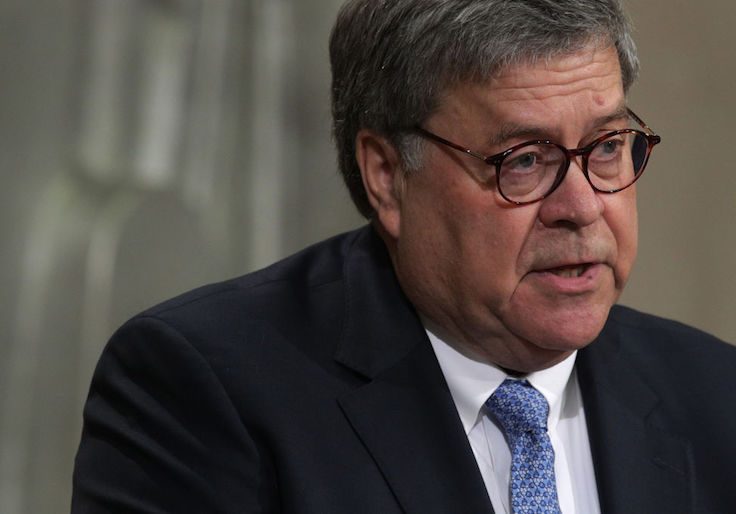A new rule will bar foreign nationals from receiving asylum in the United States if they did not first apply in an intermediary country, the Departments of Justice and Homeland Security announced Monday.
In practice, the rule would mostly affect Central American asylum seekers, tens of thousands of whom have flooded across the southwestern border in recent months. Those individuals would be denied asylum if they failed to first seek it in "at least one third country" along the way, according to a DOJ press release.
Under current immigration patterns, this would mostly mean that individuals from Guatemala, Honduras, and El Salvador would need to request asylum from the Mexican government, and be denied, in order to have a shot at asylum in the U.S. It is worth noting, however, that the rule covers all asylum applicants entering at the southern border, not just those originating in Central America.
The new rule is a response to the continued crisis at the border. Immigration detention facilities and courts are swamped by huge numbers of new arrivals, which the DOJ says "corresponds with a sharp increase in the number, and percentage, of aliens claiming fear of persecution or torture when apprehended or encountered by DHS." The uptick in asylum claims may represent the spread of such fears in struggling "northern triangle" nations, but it also likely comes because the mere act of making an asylum claim can increase an individual's time in the United States substantially.
"The United States is a generous country but is being completely overwhelmed by the burdens associated with apprehending and processing hundreds of thousands of aliens along the southern border," Attorney General William Barr said. "This Rule will decrease forum shopping by economic migrants and those who seek to exploit our asylum system to obtain entry to the United States—while ensuring that no one is removed from the United States who is more likely than not to be tortured or persecuted on account of a protected ground."
According to the DOJ, Barr has the authority to make such rules under the Immigration and Nationality Act, which grants him discretion to "establish additional limitations and conditions…under which an alien shall be ineligible for asylum." Still, the rule will likely face a court challenge, just as have numerous other Trump-era immigration regulations.
The Trump administration, meanwhile, is making moves to establish "safe third country" agreements with Mexico and Guatemala, which would oblige asylum seekers entering either country to make asylum claims there first, before applying for asylum in the United States. DHS attributed the recent decline in southwestern border apprehensions—down from 150,000 in May to roughly 100,000 in June—to increased border enforcement by Mexico and the implementation of a "remain in Mexico" policy.
